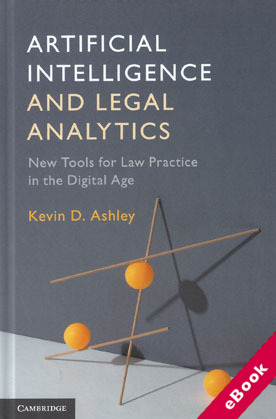We will be closed from 5pm Thursday 17th April for the Easter Bank Holidays, re-opening at 8.30am on Tuesday 22nd April. Any orders placed during this period will be processed when we re-open.

The device(s) you use to access the eBook content must be authorized with an Adobe ID before you download the product otherwise it will fail to register correctly.
For further information see https://www.wildy.com/ebook-formats
Once the order is confirmed an automated e-mail will be sent to you to allow you to download the eBook.
All eBooks are supplied firm sale and cannot be returned. If you believe there is a fault with your eBook then contact us on ebooks@wildy.com and we will help in resolving the issue. This does not affect your statutory rights.
The field of artificial intelligence (AI) and the law is on the cusp of a revolution that began with text analytic programs like IBM's Watson and Debater and the open-source information management architectures on which they are based.
Today, new legal applications are beginning to appear and this book - designed to explain computational processes to non-programmers - describes how they will change the practice of law, specifically by connecting computational models of legal reasoning directly with legal text, generating arguments for and against particular outcomes, predicting outcomes and explaining these predictions with reasons that legal professionals will be able to evaluate for themselves.
These legal applications will support conceptual legal information retrieval and allow cognitive computing, enabling a collaboration between humans and computers in which each does what it can do best. Anyone interested in how AI is changing the practice of law should read this illuminating work.